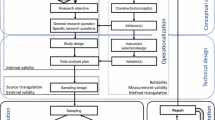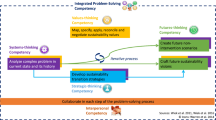Abstract
In Australia, when a person wants to work in the outdoor education or recreation field, they can follow a number of different pathways to gain the required knowledge, skills and experience. Typically, this involves the completion of a formal program with either a training organisation or a university, depending on the qualification sought. Programs delivered by training organisations typically use a national training package to define the specific competencies (knowledge and skills) and the curriculum and outcomes of these programs are clearly defined, and qualifications are usually transferable around the country. Outdoor education programs delivered by universities in Australia, however, have no such clarity. This paper describes a research study that used the Delphi research method to consult with academics working in university outdoor education programs across Australia. The research set out to establish a set of threshold concepts that articulate what a student who completes at least a major in outdoor education knows and is able to do. Over two rounds of consultation the six authors of this paper formed the Delphi facilitation team, which solicited input and feedback from an expert panel. Nineteen different university academics participated in the research and produced seven threshold concepts, which are shared in this paper to encourage discussion and invite feedback from a wider range of stakeholders. More research is required to ascertain the efficacy of these threshold concepts in describing what graduates of university outdoor education programs know and can do.
Similar content being viewed by others
References
Australian Qualifications Framework Council. (2013). Australian qualifications framework, (2nd ed.) Retrieved from https://www.aqf.edu.au/aqf-second-edition-january-2013
Barradell, S., & Peseta, T. (2017). Putting threshold concepts to work in health sciences: Insights for curriculum design from a qualitative research synthesis. Teaching in Higher Education, 22(3), 349–372.
Barrett, M. J., Harmin, M., Maracle, B., Patterson, M., Thomson, C., Flowers, M., & Bors, K. (2016). Shifting relations with the more-than-human: Six threshold concepts for transformative sustainability learning. Environmental Education Research. https://doi.org/10.1080/13504622.2015.1121378.
Biggs, J. (2014). Constructive alignment in university teaching. HERDSA Review of Higher Education., 1, 5–22.
Blenkinsop, S., Telford, J., & Morse, M. (2016). A surprising discovery: Five pedagogical skills outdoor and experiential educators might offer more mainstream educators in this time of change. Journal of Adventure Education and Outdoor Learning, 16(4), 346–348.
Bond-Rogers, E., & Rose, J. (2019). A critical exploration of women’s gendered experiences in outdoor leadership. Journal of Experiential Education, online first, https://doi.org/10.1177/1053825918820710.
Boyes, M. (2004). The maintenance of quality in the preparation of outdoor education teachers. New Zealand Journal of Outdoor Education: Ko Tane Mahuta Pupuke, 1(4), 82–98.
Breunig, M. (2019). Beings who are becoming: Enhancing social justice literacy. The Journal of Experimental Education. https://doi.org/10.1177/1053825918820694.
Brookes, A. (2018). Preventing fatal incidents in school and youth group camps and excursions: Understanding the unthinkable. Cham: Springer.
Brookes, A., & Holmes, P. (2014). Supervision of school and youth groups on lift-served ski-slopes: A research perspective. Journal of Outdoor and Environmental Education, 17(2), 30–42. https://doi.org/10.1007/BF03400968.
Cousin, G. (2006). An introduction to threshold concepts. Planet, 17, 4–5.
Dalkey, N., & Helmer, O. (1963). An experimental application of the Delphi method to the use of experts. Management Science, 9(3), 458–467.
Department of Education and Training. (2015). Training package details SIS10 - Sport, Fitness and Recreation Training Package. Retrieved from https://training.gov.au/Training/Details/SIS10#.
Dewey, J. (1938). Experience and education. New York: Macmillan.
Dyment, J., Chick, H., Walker, C., & Macqueen, T. (2018). Pedagogical content knowledge and teaching of outdoor education. Journal of Adventure Education and Outdoor Education Learning, 18(4), 303–322. https://doi.org/10.1080/14729679/2018.1451756.
Fletcher, A. J., & Marchildon, G. P. (2014). Using the Delphi method for qualitative, participatory action research in health leadership. International Journal of Qualitative Methods, 13, 1–18.
Galloway, S. (2002). Theoretical cognitive differences in expert and novice outdoor leader decision making: Implications for training and development. The Journal of Experimental Education, 2(1), 19–28.
Galloway, S. (2007). Experience and medical decision-making in outdoor leaders. The Journal of Experimental Education, 30(2), 99–116.
Gray, T., & Mitten, D. (Eds.). (2018). The Palgrave international handbook of women and outdoor learning. London: Palgrave Macmillan.
Hill, A., & Brown, M. (2014). Intersections between place, sustainability and transformative outdoor experiences. Journal of Adventure Education and Outdoor Learning, 14(3), 217–232. https://doi.org/10.1080/14729679.2014.918843.
Hills, D., & Thomas, G. J. (2019). Digital technology and outdoor experiential learning. Journal of Adventure Education and Outdoor Learning. https://doi.org/10.1080/14729679.2019.1604244.
Keeney, S., Hasson, F., & McKenna, H. P. (2001). A critical review of the Delphi technique as a research methodology for nursing. International Journal of Nursing Studies, 38, 195–200.
Kennedy, H. P. (2004). Enhancing Delphi research: Methods and results. Journal of Advanced Nursing, 45(5), 504–511.
Larkin, I. (2003). Developing a code of ethics for Australian outdoor education, in Relevance: Making it Happen (pp. 115–120), Proceedings of the 13th National Outdoor Education Conference, Adelaide, South Australia.
Martin, P. (1998). Educational ideology and outdoor leadership education: Why both ORCA and the AOEC exist. Australian Journal of Outdoor Education, 3(1), 14–20.
Martin, B., Bruenig, M., Wagstaff, M., & Goldenberg, M. (2017). Outdoor leadership: Theory and practice (2nd ed.). Champaign: Human Kinetics.
Meyer, J. H. F. (2016). Threshold concepts and pedagogic representation. Education + Training, 58(5), 463–475.
Meyer, J. H. F., & Land, R. (2003). Threshold concepts and troublesome knowledge: Linkages to ways of thinking and practicing within the disciplines. In C. Rust (Ed.), Improving student learning: Theory and practice ten years on (pp. 412–424). Oxford: OCSLD Retrieved on September 24, 2016 from https://www.dkit.ie/ga/system/files/Threshold_Concepts__and_Troublesome_Knowledge_by_Professor_Ray_Land_0.pdf.
Meyer, J. H. F., & Land, R. (2005). Threshold concepts and troublesome knowledge (2): Epistemological considerations and a conceptual framework for teaching and learning. Higher Education, 49(3), 373–388.
Meyer, J. H. F., & Land, R. (2006). Threshold concepts and troublesome knowledge: An introduction. In J. H. F. Meyer & R. Land (Eds.), Overcoming barriers to student understanding: Threshold concepts and troublesome knowledge (pp. 3–18). London: Routledge.
Morgan, P. K. (2015). Pausing at the threshold. (Paper 1258). Faculty Publications. http://digitalcommons.hope.edu/faculty_publications/1258
Morrison, C., & Pickering, C. (2013). Limits to climate change adaptation: Case study of the Australian Alps. Geographical Research, 51(1), 11–25.
Nicola-Richmond, K., Pepin, G., Larkin, H., & Taylor, C. (2018). Threshold concepts in higher education: A synthesis of the literature relating to measurement of threshold crossing. Higher Education Research & Development, 37(1), 101–114.
North, C., & Brookes, A. (2017). Case-based teaching of fatal incidents in outdoor education teacher preparation courses. Journal of Adventure Education and Outdoor Learning, 17(3), 191–202. https://doi.org/10.1080/14729679.2017.1308873.
O’Donnell, R. (2010). A critique of the threshold concepts hypothesis and an application in economics (Working Paper No. 164). Retrieved from http://www.finance.uts.edu.au/research/wpapers/wp164.pdf
Outdoor Education Australia. (2017). Code of Ethics, accessed 19/2/2019 from https://outdooreducationaustralia.org.au/about/code-of-ethics/
Payne, P., & Wattchow, B. (2009). Phenomenological deconstruction, slow pedagogy and the corporeal turn in wild environmental/outdoor education. Canadian Journal of Environmental Education, 14, 15–32.
Polley, S., & Thomas, G. J. (2017). What are the capabilities of graduates who study outdoor education in Australian universities? The case for a threshold concepts framework. Journal of Outdoor and Environmental Education, 20(1), 55–63. https://doi.org/10.1007/BF03401003.
Priest, S., & Gass, M. A. (2017). Effective leadership in adventure programming (3rd ed.). Champaign: Human Kinetics.
Rosengren, N., & Peterson, J. (1989). Heritage values and the geological and geomorphological significance of the Australian alpine zone. The Scientific Significance of the Australian Alps. The Australian Alps National Parks Liaison Committee/Australian Academy of Science, Canberra, 187–204.
Rowbottom, D. R. (2007). Demystifying threshold concepts. Journal of Philosophy of Education, 41(2), 263–270.
Schön, D. A. (1995). The reflective practitioner: How professionals think in action. Aldershot: Arena.
Sellars, M. (2017). Reflective practice for teachers. Los Angeles: SAGE.
Shanahan, M. (2016). Threshold concepts in economics. Education + Training, 58(5), 510–520.
SkillsIQ. (2015). SIS10: Sport, Fitness, and Recreation Training Package (Release 3.1). Retrieved from https://training.gov.au/Training/Details/SIS10
Smith, H., & Penney, D. (2010). Effective, exemplary, extraordinary? Towards an understanding of extraordinary outdoor leadership. Australian Journal of Outdoor Education, 14(1), 23–29.
Stewart, A. (2012). Uncharted waters: An outdoor environmental education rhizocurrere. Journal of Outdoor and Environmental Education, 16(1), 58.
Thomas, G. J. (2008). Preparing facilitators for experiential education: The role of intentionality and intuition. Journal of Adventure Education and Outdoor Learning, 8(1), 3–20.
Thomas, G. J. (2018). Effective teaching and learning strategies in outdoor education: Findings from two residential programmes based in Australia. Journal of Adventure Education and Outdoor Learning. https://doi.org/10.1080/14729679.2018.1519450.
Thomas, G. J., & Munge, B. (2017). Innovative outdoor fieldwork pedagogies in the higher education sector: Optimising the use of technology. Journal of Outdoor and Environmental Education, 20(1), 7–13.
Tough, S., & Butt, J. (1993). A review of fatal injuries associated with downhill skiing. The American Journal of Forensic Medicine and Pathology, 14(1), 12–16.
Warren, K., Roberts, N. S., Breunig, M., & Alvarez, M. A. G. (2014). Social justice in outdoor experiential education: A state of knowledge review. The Journal of Experimental Education, 37(1), 89–103.
Wattchow, B., & Brown, M. (2011). A pedagogy of place: Outdoor education for a changing world. Clayton: Monash University Publishing.
Williams, A., & Wainwright, N. (2016). A new pedagogical model for adventure in the curriculum: Part two - outlining the model. Physical Education and Sport Pedagogy, 21(6), 589–602. https://doi.org/10.1080/17408989.2015.1048212.
Acknowledgments
We would like to acknowledge the input and support of the academics from the Australian Tertiary Outdoor Education Network who contributed as expert panel members.
Author information
Authors and Affiliations
Corresponding author
Ethics declarations
Conflict of interest
On behalf of all authors, the corresponding author states that there is no conflict of interest.
Additional information
Publisher’s note
Springer Nature remains neutral with regard to jurisdictional claims in published maps and institutional affiliations.
Rights and permissions
About this article
Cite this article
Thomas, G., Grenon, H., Morse, M. et al. Threshold concepts for Australian university outdoor education programs: findings from a Delphi research study. Journal of Outdoor and Environmental Education 22, 169–186 (2019). https://doi.org/10.1007/s42322-019-00039-1
Published:
Issue Date:
DOI: https://doi.org/10.1007/s42322-019-00039-1




